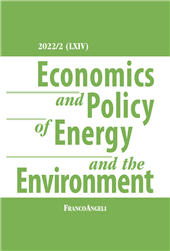The impact of oil price shocks on economic growth in Algeria
63-82 p.
In this study, we investigate the consequences of oil price shocks on Algerian economic growth, both on an aggregated and a disaggregated level. We adopt the method used in (Kilian, 2009) in which global oil supply shocks, global demand shocks, and anticipated demand shocks are defined. We use a two structural VAR models. The first model identifies shocks to oil prices using monthly data on oil production, oil real prices, and indicators of global economic activity. The second model describes the dynamics of a set of macroeconomic variables: real overall GDP, hydrocarbon GDP, agricultural GDP, construction GDP, and international trade variables. To grasp the impact of oil shocks on sectoral growth, the model is aug mented via three external shocks identified in the first stage. Our results are twofold. First, they show the significance of the oil price shocks' impact on the Algerian economy.
Second, they indicate an asymmetry in this impact. Negative shocks to oil prices have depressive effects on economic activity as a whole, including the nonhydrocarbon sector. We detect a delayeffect; global demand shocks affect economic sectors after 57 quarters, whereas oil price shocks affect the hydrocarbon sector after 12 quarters only. [Publisher's text].
-
Articoli dello stesso fascicolo (disponibili singolarmente)
-
Informazioni
Codice DOI: 10.3280/EFE2022-002004
ISSN: 2280-7667
PAROLE CHIAVE
- oil price shocks, structural var, disaggregated growth, Algeria, oil exporting coun try.


